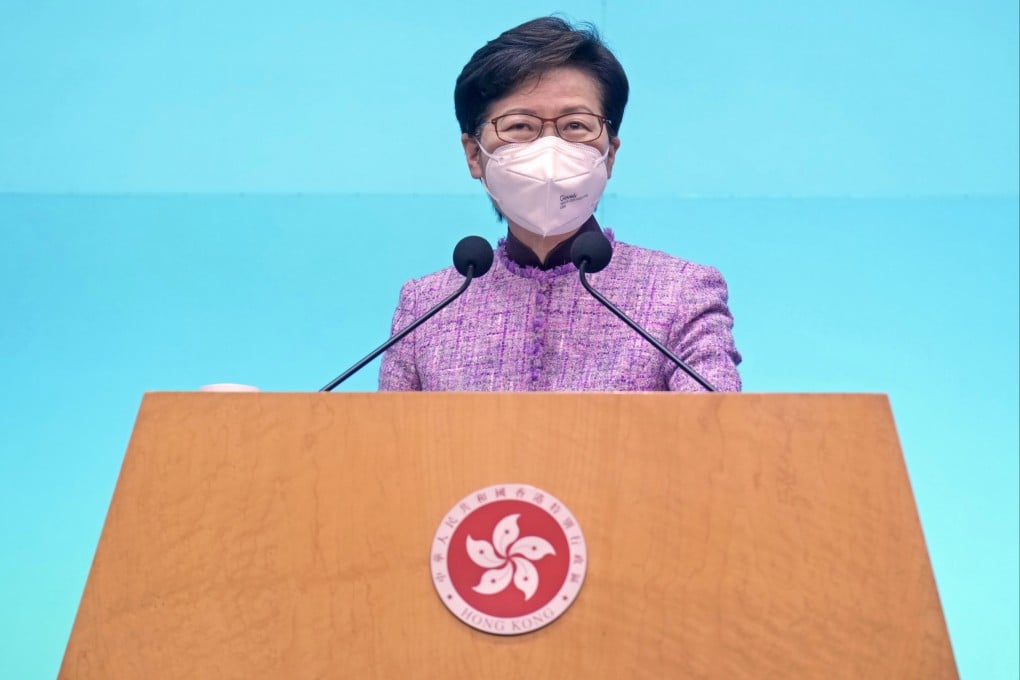Editorial | Carrie Lam may have passed the Hong Kong baton but her work is not done
- In the few months she still has left in office, the chief executive must continue to tirelessly control the Covid-19 pandemic, ensure a smooth transition to a new leader and prepare Hong Kong to mark the 25th anniversary of its reunification with China

After months of uncertainty and political intrigue, Chief Executive Carrie Lam Cheng Yuet-ngor has announced that she will not seek a second term in office, opening the door to others to become Hong Kong’s new leader when an election is held next month. It will be the transition to another chapter in the city’s history and provide a much-needed opportunity for a new start under another leader.
Amid intensifying speculation following the start of a two-week nomination period, Lam’s announcement on Monday is perhaps unsurprising. What really raised eyebrows was that she said she had informed Beijing of her intention back in March last year, citing family reasons.
“My family members are of the view that it is time I returned home,” she said. Lam’s predecessor, Leung Chun-ying, also cited family reasons when he decided not to seek a second term, but he made the announcement in early December 2016, leaving Lam and other aspirants ample time to prepare for their campaigns.
Lam said Beijing had expressed understanding of her decision but stopped short of saying whether there was any effort to persuade her to stay. The account might counter speculation that she has been denied a second term because of poor performance in handling the social unrest in 2019 and the ongoing coronavirus pandemic.
But questions have been raised as to why she had not followed Leung’s lead to clear the stage earlier so others could come forward at a time when the Covid-19 crisis was not so dire.

